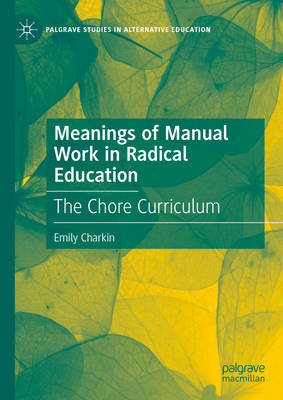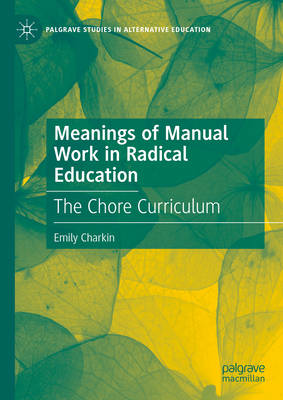
- Retrait gratuit dans votre magasin Club
- 7.000.000 titres dans notre catalogue
- Payer en toute sécurité
- Toujours un magasin près de chez vous
- Retrait gratuit dans votre magasin Club
- 7.000.0000 titres dans notre catalogue
- Payer en toute sécurité
- Toujours un magasin près de chez vous
Description
This book aims to challenge and inspire readers with lived examples of alternatives to current paradigms in education, childhood and community, through new research into two important and neglected schools in the history of progressive and radical education. Kilguhanity and Wennington schools were both founded in the UK in 1940, and at both schools pupils and staff were extensively involved in the manual work of looking after and shaping the physical fabric of the community. The author uses these case studies to challenge the tendency to equate pupil participation with 'voice' and 'meetings', and casts light on a fault line within the progressive and radical traditions. She then presents new challenges and perspectives to ongoing debates about education and childhood, unsettling the stalemate between liberal and traditional, and progressive and radical schools by uncovering a community-based alternative. The book offers a contribution to a growing body of contemporary research literature on progressive and radical education, alternative education, informal education and social pedagogy as well as across the disciplines of childhood studies, history, philosophy and geography.
Spécifications
Parties prenantes
- Auteur(s) :
- Editeur:
Contenu
- Nombre de pages :
- 232
- Langue:
- Anglais
- Collection :
Caractéristiques
- EAN:
- 9783031670305
- Date de parution :
- 25-02-25
- Format:
- Livre relié
- Format numérique:
- Genaaid
- Dimensions :
- 148 mm x 210 mm
- Poids :
- 444 g

Les avis
Nous publions uniquement les avis qui respectent les conditions requises. Consultez nos conditions pour les avis.






